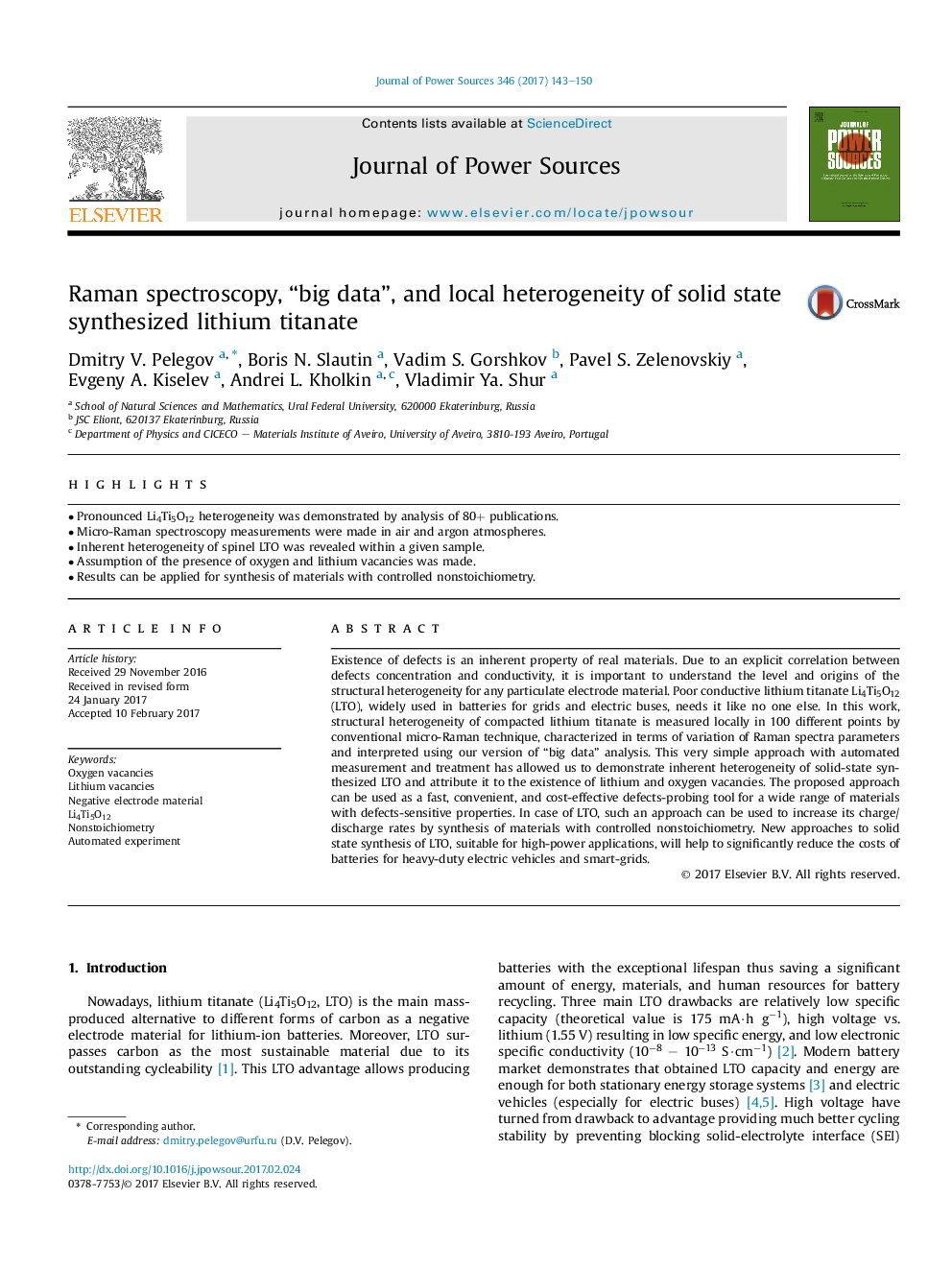| کد مقاله | کد نشریه | سال انتشار | مقاله انگلیسی | نسخه تمام متن |
|---|---|---|---|---|
| 5149724 | 1497886 | 2017 | 8 صفحه PDF | دانلود رایگان |
عنوان انگلیسی مقاله ISI
Raman spectroscopy, “big data”, and local heterogeneity of solid state synthesized lithium titanate
دانلود مقاله + سفارش ترجمه
دانلود مقاله ISI انگلیسی
رایگان برای ایرانیان
کلمات کلیدی
موضوعات مرتبط
مهندسی و علوم پایه
شیمی
الکتروشیمی
پیش نمایش صفحه اول مقاله

چکیده انگلیسی
Existence of defects is an inherent property of real materials. Due to an explicit correlation between defects concentration and conductivity, it is important to understand the level and origins of the structural heterogeneity for any particulate electrode material. Poor conductive lithium titanate Li4Ti5O12 (LTO), widely used in batteries for grids and electric buses, needs it like no one else. In this work, structural heterogeneity of compacted lithium titanate is measured locally in 100 different points by conventional micro-Raman technique, characterized in terms of variation of Raman spectra parameters and interpreted using our version of “big data” analysis. This very simple approach with automated measurement and treatment has allowed us to demonstrate inherent heterogeneity of solid-state synthesized LTO and attribute it to the existence of lithium and oxygen vacancies. The proposed approach can be used as a fast, convenient, and cost-effective defects-probing tool for a wide range of materials with defects-sensitive properties. In case of LTO, such an approach can be used to increase its charge/discharge rates by synthesis of materials with controlled nonstoichiometry. New approaches to solid state synthesis of LTO, suitable for high-power applications, will help to significantly reduce the costs of batteries for heavy-duty electric vehicles and smart-grids.
ناشر
Database: Elsevier - ScienceDirect (ساینس دایرکت)
Journal: Journal of Power Sources - Volume 346, 1 April 2017, Pages 143-150
Journal: Journal of Power Sources - Volume 346, 1 April 2017, Pages 143-150
نویسندگان
Dmitry V. Pelegov, Boris N. Slautin, Vadim S. Gorshkov, Pavel S. Zelenovskiy, Evgeny A. Kiselev, Andrei L. Kholkin, Vladimir Ya. Shur,